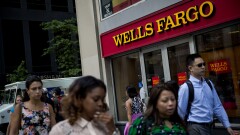Do-it-yourself investors who began working with wealth managers in the pandemic era are experiencing more account problems and lower levels of customer satisfaction, according to a new J.D. Power study.
The annual J.D. Power
The study, now in its 20th year, finds that newer investors are more likely than tenured investors to butt heads with problems like website malfunctions and issues processing transactions. Nearly one in five, or 19%, of pandemic-era investors experienced problems within the past year compared to 13% of more experienced investors.
Meanwhile, 84% of the newbies had their problems resolved compared to 92% of tenured investors.
“Pandemic-era investors who entered the financial markets during a real gold rush period of heightened expectations, significant disruption and extreme volatility represent a unique set of challenges for retail brokerage firms,” Michael Foy, senior director and head of wealth intelligence at J.D. Power, said in a statement. “First, they constitute a huge segment, which has accounted for about 25 million new accounts since 2020. They also tend to be younger, less financially secure and more apt to experience problems that are not currently being addressed effectively by their brokerage firms.
“Right now, most firms are missing the mark when it comes to delivering the level of tailored customer experience that will help them convert this next generation of investors into loyal and profitable clients.”
The negative experiences made an impact, according to the study. Brand loyalty among pandemic-era investors is less than half that of more seasoned clients, and newer investors are more than twice as likely to switch brokerage firms than investors who’ve had their accounts for three or more years.
“Just 24% of pandemic-era investors say they definitely will not switch providers, which is down 11 percentage points from a year ago,” according to a statement from J.D. Power. “Among more tenured investors, 50% say they definitely will not switch providers. Primary drivers of attrition risk include lack of satisfaction with products, services and tools and recommendations from friends and relatives to switch providers.”
Satisfaction scores are significantly lower among financially vulnerable clients, the study finds, suggesting firms should work on how they deliver content, tools and services that can help clients more effectively manage investments in the proper context.
Along with DIY investors, the study also tracks satisfaction among clients who interact with their firm’s financial professionals for advice despite not working with a traditional, dedicated financial advisor.
Results show that average satisfaction among this segment currently is lower than among either DIY or full-service investors, indicating that the potential of this model has not yet been fully realized.
“With trading fees no longer being a significant revenue driver, the big opportunity for retail brokerage firms is creating loyal clients who will deepen their relationships to include revenue-generating services that address their broader financial needs for things such as advice, cash management and lending,” Foy said in a statement. “Right now, that’s precisely where many firms are dropping the ball. They are struggling to meet their clients where they are at this point in their lives and deliver the type of personalized advice, educational tools and problem-free experiences they need to grow with their firms.”
J.D. Power spoke with 4,888 investors between November and January to compile the firms’ satisfaction scores and rankings. Each of the investors said they make all their investment decisions without the counsel of a full-service dedicated financial advisor.
To get a “satisfaction index” for each wealth manager on a 1,000-point scale, J.D. Power used seven weighted factors: “trust; digital channels; the ability to manage wealth how and when I want; products and services; value for fees; people; and problem resolution.”
To see this year’s rankings for both DIY investors followed by the rankings for investors seeking guidance, scroll down our slideshows.






















